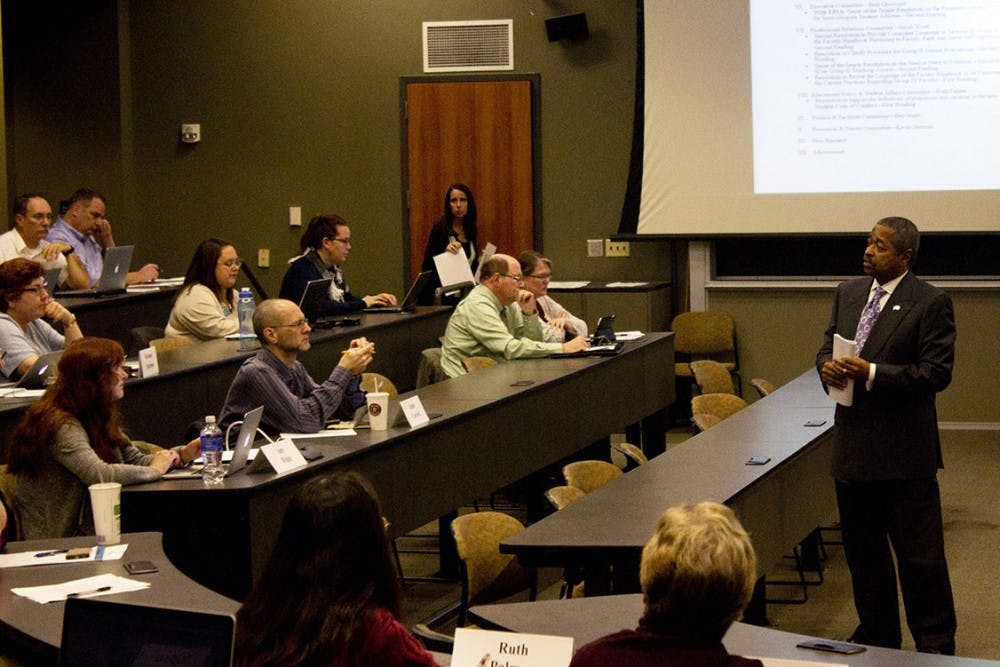Under the policy, the Office Information and Technology would monitor mass email requests and forward them to University Communications and Marketing and university administrators.
A proposed new mass email policy, which will go before Ohio University administrators in October, raised questions about First Amendment rights at the Faculty Senate meeting held on Sept. 14.
That policy has been discussed among administrators for almost a year and could introduce new restrictions on those trying to send emails to large groups on campus.
Under the policy, the OU Office of Information and Technology would monitor mass email requests and forward them to University Communications and Marketing and university administrators, Joseph Lalley, senior vice associate president for information technology and administrative services, said at the Monday meeting.
In the policy, administrators would serve as “communication stewards for the university constituent groups.”
UCM and those “stewards” would be able to approve or deny the message request based on the restrictions outlined in the policy. The restrictions include no spam, no sensitive data and a request to avoid the use of attachments, Lalley said.
The policy has been in the works since December, but there is no current approval process in place for sending mass emails throughout the university. The policy is intended to ensure that important messages reach their appropriate audiences in a timely manner, Lalley said.
Bill Reader, an associate professor of journalism, criticized the proposed policy at the meeting.
“It raises some serious First Amendment issues,” Reader said. “It looks like it is being fast-tracked for approval before faculty (and) staff can get their hands on it.”
Reader said his main concern about the policy is the lack of an appeals process for emails that are denied. Lalley said the policy will be reviewed with the intention of adding an appeals policy.
“University Communications and Marketing has been aware of this proposed policy and would not require additional staffing in the event that it becomes university procedure,” Daniel Pittman, a public relations manager for UCM, said.
There are some university departments that will not have to go through the process, including the Ohio University Police Department, Residential Housing and the Office of Student Financial Aid.
The policy will also sort mass emails into three categories: emergency, priority and informational. Emergency and priority emails are both time sensitive and highly important.
{{tncms-asset app="editorial" id="e6185e68-5b5c-11e5-9d2f-37ac7e476d2d"}}
“The mass communications policy is very scary and they showed it on the screen in text that I could barely read,” Reader said. “I think they need to slow down on it.”
Reader also referenced last year’s lawsuit that was settled between the university and Isaac Smith, former associate director of OU’s Students Defending Students. Smith claimed the university violated his first amendment rights through the Code of Conduct.
“The First Amendment credentials of the university are not stellar,” Reader said.
@KyraCobbie
kc036114@ohio.edu






